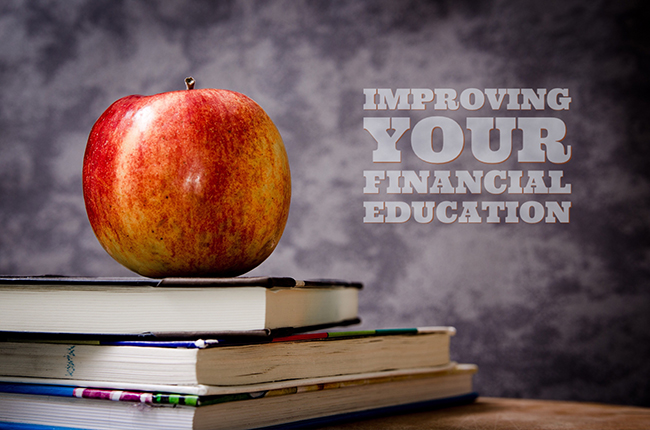Are you looking to understand the basics of finance, such as budgeting? How about discovering the best ways to get your finances into shape? If you are, then you may have already noticed that there is no shortage of online resources available. But, where exactly do you start? Here are fifteen recommended sources that will definitely improve your financial education.
Table of Contents
Toggle1. Money, Banking and Financial Markets
This is an eleven-part chapter offered by Study.com. Each chapter contains video lessons, transcripts, and self-assessment quizzes and covers a wide range of topics like the various types of financial assets, calculating the value of money, the basic functions of money, and describing the differences between money, wealth, and income.
You can register for a free trial and then potentially earn credit towards your college degree if you university has partnered with Study.com.
2. Fundamentals of Personal Financial Planning
This is a free course offered by the University of California-Irvine. It contains 22 lessons that discuss basic personal financial planning concepts. The course, which is open for the public to use, focuses primarily on how to monitor your own finances, as well as how to save for education, student loans, or wealth management and estate planning.
3. Finance at Khan Academy
Khan Academy has put together a series of video presentations on personal finance that describe everything from taxes, accounting and financial statements, investment vehicles, interest and debt, inflation, and current economics. While there is an emphasis on personal finance, the videos also discuss the bigger picture. For example, the video on inflation takes a look at how it impacts your personal finances, as well as how inflation is actually caused.
4. CNN’s Money 101
If you need assistance in better understanding financial basics, such as budgeting and setting financial goals, CNN’s Money 101 is one of the best places to start. The free online lessons overall cover 23 financial topics in a tutorial-style walkthrough that is easy-to-understand and digest for newbies.
5. MyMoney.Gov
This site was launched by the Federal Financial Literacy and Education Commission in order to help people in the following categories: Spend, Earn, Save & Invest, Protect and Borrow. The site also comes equipped with money quizzes and tools like budgeting worksheets.
6. Budgets Are Sexy
How does becoming a millionaire and retiring early sound to you? It’s absolutely possible if you follow the advice J. Money. Through this blog, he shares the best ways to budget your money by using templates, personal advice, and a little experimentation. He also shares the services, tools, and apps that he uses himself that can help you achieve financial freedom.
7. Yahoo! Finance Education
This is an excellent resource if you ever need to know a financial term or want to know the basics in investing and personal finance – all of which are straightforward and easy-digest. The site also provides the latest financial news and advice from reputable sources like the Wall Street Journal.
8. GCF Learn Free
This financial education site was launched by by the Goodwill Community Foundation. It contains 90 free tutorials that detail everything from creating a budget, various banking options, buying a car or house, and how to live within your means. Additionally, after each lesson, you’ll take an exit quiz to test your knowledge.
What I most like about their approach is that they use the latest trends and data from Google Analytics to develop to develop the curriculum.
9. The Penny Hoarder
Started by Kyle Taylor as a blog that shared the unique ways that he saved money, the Penny Hoarder now has 11 monthly visitors who visit the site to discover inspiring stories from real people, practical financial advice. Lastly, it includes unconventional ways to pay off their debt, like extreme couponing and side hustling from home.
10. The Motley Fool
Founded in 1993 by brothers Tom and David Gardner, this site “helps millions of people attain financial freedom through” their “website, podcasts, books, newspaper column, radio show, mutual funds, and premium investing services.” The Motley Fool also provides advice, the latest financial news, financial guides, and where to find a local broker.
11. Dave Ramsey
Since forming “Ramsey Solutions in 1992 to counsel folks hurting from the results of financial stress,” Dave Ramsey has created an educational website that contains everything from budgeting basics, online classes, a radio show, budgeting tools, and a list of insurance and mortgage companies that Dave recommends.
12. Freakonomics Radio
As the brainchild of economist Steven D. Levitt and journalist Stephen J. Dubner, authors of the amazing book of the same name, you can expect entertaining and irreverent coverage on both finance and human behavior. The Freakonomics Radio podcast also shares of out-of-the box solutions for resolving problems.















